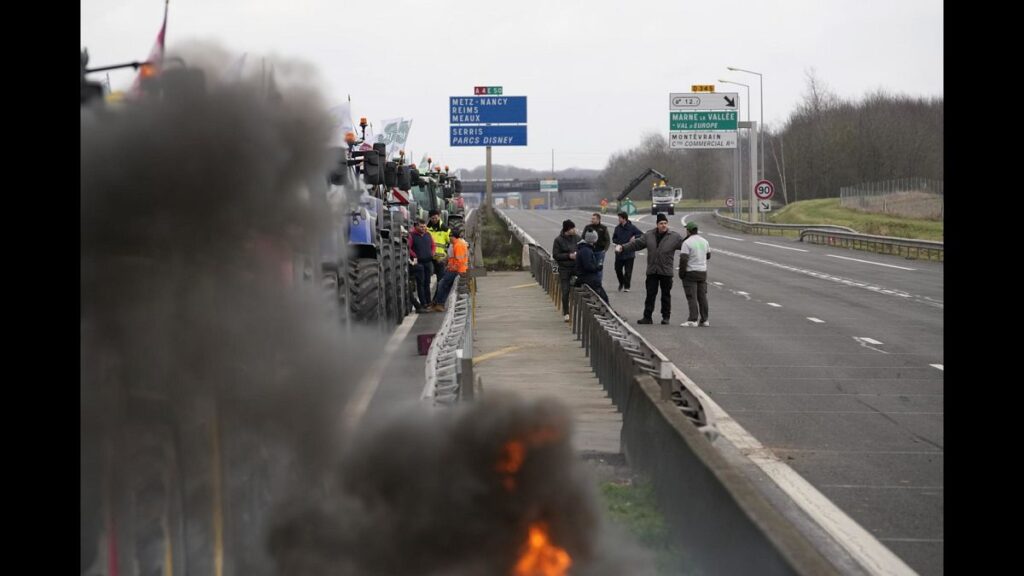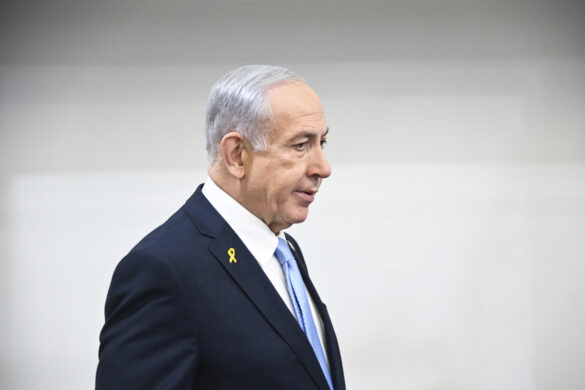The French executive is unable to undermine the determination of the angry farmers who are tightening the noose on Paris.
Angry French farmers are moving closer to Paris and the huge Rungis fresh produce market.
A convoy of 200 to 300 tractors left the southwest and reached Orléans while to the north of the capital, other farmers are blocking the A1 motorway about forty kilometers from the capital.
Guillaume Chartier: “Promises, promises, words and words, but no actions. We are waiting for actions and depending on the actions, we will see if we break camp or not.”
Abély, female farmer: “We will go to Paris if we have to go to Paris. Afterwards, me personally, I think that blocking the national roads which lead to Paris… Me being on the Champs-Élysées doesn’t interest me necessarily”.
Negotiations and the executive are trying to appease the anger of farmers.
Gabriel Attal French Prime Minister: “And, of course, we have taken resolute action to ensure the agricultural sovereignty of our country. I say it here solemnly, there is and there must be a French agricultural exception. I am lucid. I am lucid in the face of the pile-up of standards, in the face of the decisions that fall from above and which sometimes fall from who knows where. We will be there, without any ambiguity.”
Spanish agricultural unions are observing the French tractor convoys and some are promising “mobilizations” in the “coming weeks.”
Julio Villaescusa, president of the Fenadismer union: “Every day, almost 12,000 trucks cross the La Jonquera border and 10,000 cross the Irún border. For us, France, in addition to being a destination, is a country compulsory transit.
Further north, in Belgium, farmers are again blocking roads and highways, notably the E19 which leads to Brussels.
The simplification of standards and administrative procedures is at the heart of their demands.
In Italy, an hour from Rome, around fifty tractors have been blocking a highway exit for three days.
Italian farmers are also protesting against European agricultural policies, the rise in production costs and the reduction in subsidies for fuel purchases.




